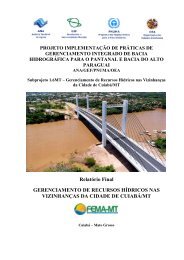Rt€@lll
Rt€@lll
Rt€@lll
You also want an ePaper? Increase the reach of your titles
YUMPU automatically turns print PDFs into web optimized ePapers that Google loves.
-LIz-<br />
adaptability. If that capacity for innovation could be married to the island ethic of<br />
self-reliance, we would have little to worry about.<br />
The irnportant difficulties we face are two-fold: firstly' we have not yet come to terms<br />
with the ultimate need for a low-growth economy (and the aehievement of social sLability<br />
within s.rch en economy); secondlyr we have yet to learn how to manage our resources<br />
cnsibly, equitably and in nabional rather than sectional interests.<br />
Since returning to New Zealand six monthe ago, the biggest cha1.ge I have noticed is in<br />
attitudes to the forelt environment. I recall my astonishment when I first srrived here in the<br />
early 1960s at what appeaned to be nothing short of a misanthropic obsession of New Zealand<br />
foresters - the padlocks on forest eccess gates, the huge notices along the tourist roules<br />
south of Rotorua proclaiming that I'lb is itlegal to enter ihese forests'r! Tlere were no<br />
provisions tnder the Forests Act for setting apart State forest parks and recreation areas in<br />
btrtu fore"ts until 1965 - and we were spending enormous $rns of rnoney annually poisoninq<br />
wildlif e!<br />
Inevitably, I then contrasted these atLitudes with Denm'rk - where every forest over 5<br />
hectares in area, State or private, is legally and freely scCessible lo public recreationists;<br />
whenedeerinStatffiffitificiallyfedsothatpeoplemaywatchthem;whereurban<br />
facilities (hotels, pubs, restaurants, racetracks, golf courses - even amusemen[ parks) are<br />
provided to attract people into forest areas; and where the forester is ss much concerned<br />
with the management of a resort as a resource!<br />
What made for difficulties in coping with NZ forestry attitudes in the 1960s was lhe<br />
patent sincerity of foresters. The idea that there might be general and free access to State<br />
production forests - let alone those in private ownerghip - was reqarded at that tirne as an<br />
astonishing concept - €xi was the notion that there might be widespread public consultation<br />
and debate about forest policies and practices. The subsequent change in attitudes has been<br />
. revolutionary; present-day foresters €re infinitely more concerned about the needs and<br />
aspirations of ordinary people (and much more knowledgeable about how those needs may be<br />
salistieO) than was tnai generation - and is, I believe, every bit as sincere. Few of us, 20<br />
years ago, could have imagined a Landscape Section in the NZ Forest Service and the<br />
iublication of Guidelines fJr Creative Forestny; or the wealth of information now freely<br />
available about our forest and environmental heritage. Who, then, eould have envisaqed a<br />
Csnmission for the Environment - let alone a Government pnepared to pay $7 million in<br />
compensation to preserve parL of Pureora?<br />
Not surprisingly there is a much greater public awareness of forest land values than<br />
there was in the fieOs - and throughout the region more people than ever before cate more<br />
than ever before about the environment in which they live and work. For the sake of our<br />
children - and their children - we should be thankful that this is so.<br />
Ccnsiderably less comf orting, however, is a disturbing parallel development - the<br />
increasing, though zubtle, exploitaiion of people's concern. There have always, I zupposet<br />
Ueen proinets oI doom but they have exploited primarily the selfishness of a few ignorant<br />
souls; our latter-day pnofiteers of doom exploit the finer feelinqs of Inany more people.<br />
Moneover, they do soinGi- ne guise of scientif ic omniscience. Again, there have always<br />
been scientific charlaLans - but they have usually deceived only each olher. A small but<br />
vociferous minority of mountebanks purporting to represent our environmental movemenLs,<br />
however, mislead vast. numbers of concerned citizens who are honest enough to acknowledge<br />
thst they do not know Lhe answer to the Faustian dilemma we face with respect to the use<br />
of our resources.<br />
There is a real need, I believe, for environmental leadership which does not<br />
over-represent particular issues at the expense of real problems. In Australia, for example,<br />
preoccupation with rain forests diverts attenLion from the Mediterranean ecosystems - which<br />
have no conservation status. In New Zealand a similar preoccupation with Government-held<br />
Iand results in an almost total absence of environmentalist pressures upon private owners of<br />
land to manage it purposefully for multiple use and in lhe naLional interest. And where is the<br />
environmentalist concern for the lraditional (and appropriate) food resourees and their<br />
management in the Pacific lslands?<br />
It is perhaps [imely to expound the splendidly sensible case for human chauvinism<br />
argued by John Passmore in his masterly account of rrManrs responsibility for NaLure" (J91 4)'



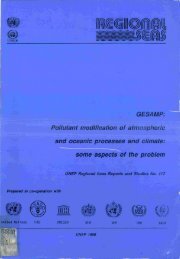
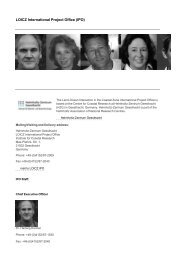
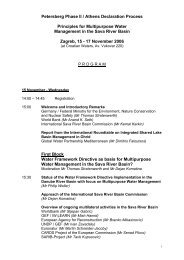

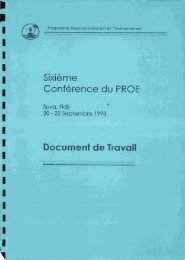
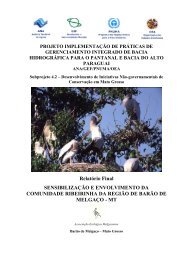

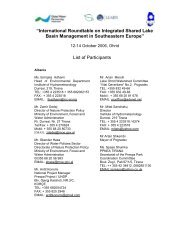

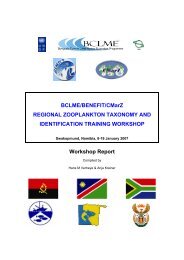
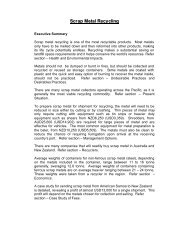
![R]€@lll](https://img.yumpu.com/7594335/1/175x260/reurlll.jpg?quality=85)
